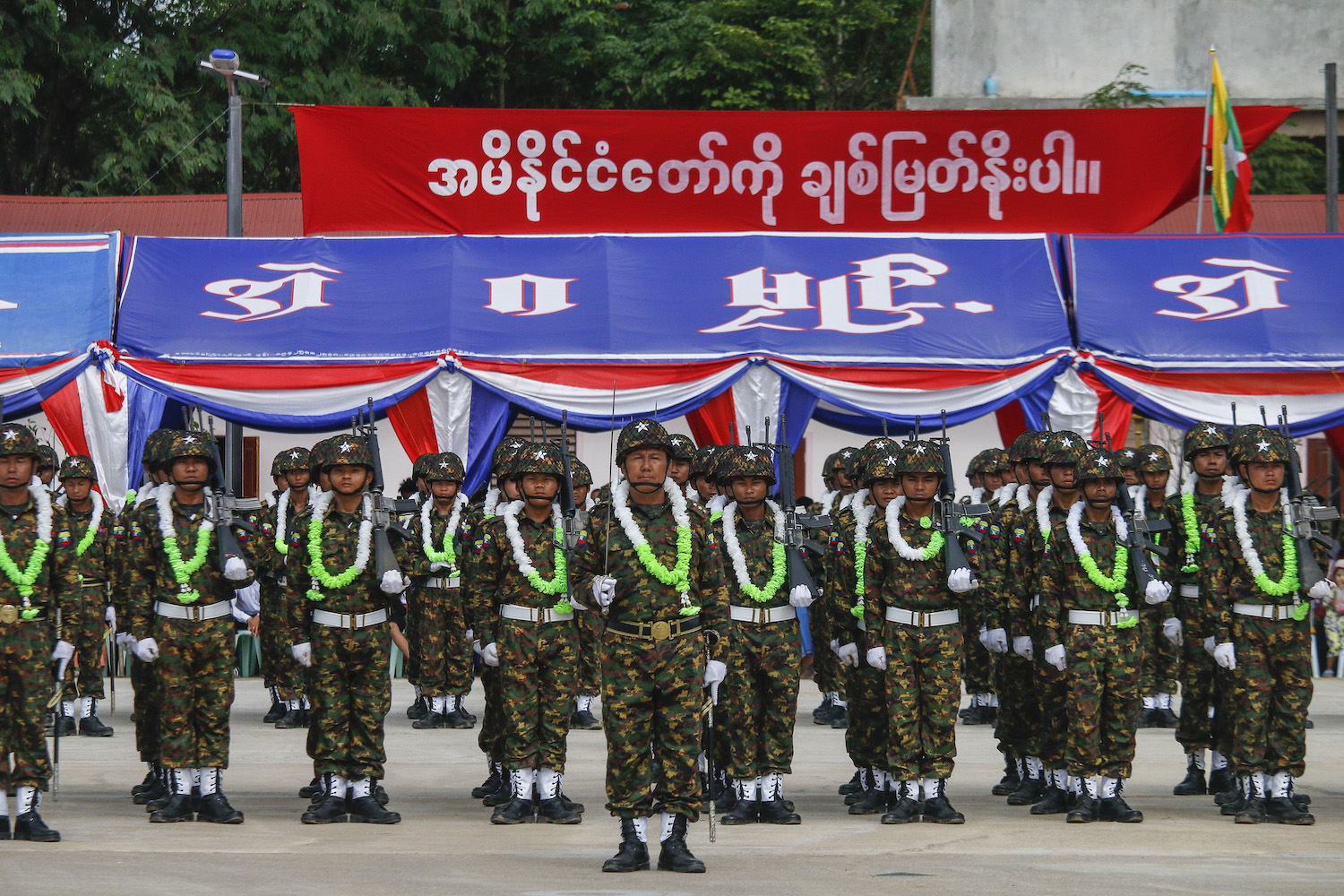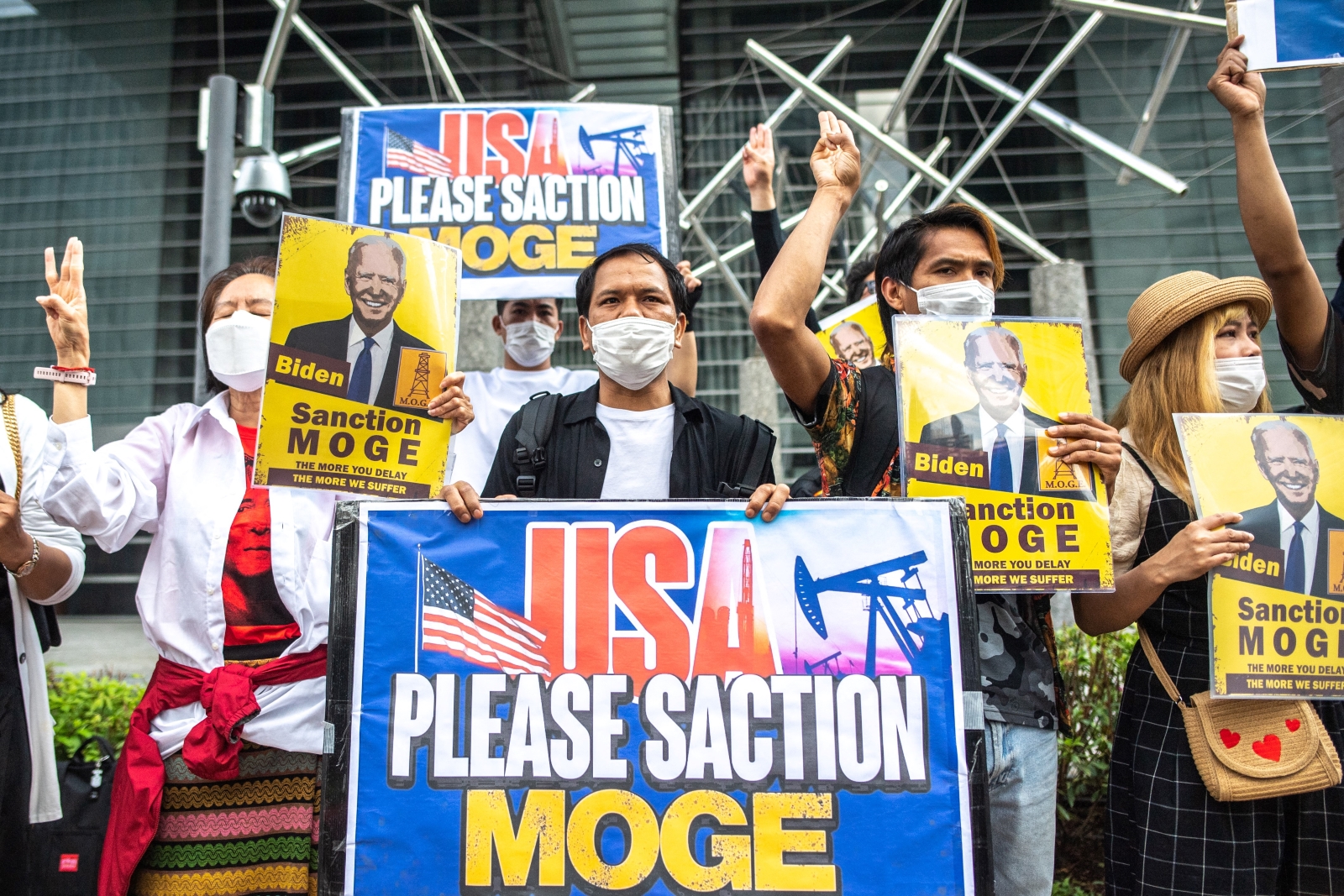Kyaw Myint is just the tiniest tip of a very large iceberg of criminal activity in Myanmar’s business community, but as long as you steer clear of politics you’re unlikely to get caught.
By FRONTIER
U Kyaw Myint’s brief but spectacular political career ended almost before it began.
Nobody seems to know exactly what game Kyaw Myint was playing when he decided to register 1,131 candidates for this year’s election. After all, his United Democratic Party had little chance of winning seats from the National League for Democracy, Union Solidarity and Development Party or ethnic-based parties.
Perhaps it was a long-term bet that his attempts at grassroots populism and unusually bold promises – “throw me in jail if you don’t see progress in five years” – would pay off in future elections. Already, though, there were signs that the party’s aggressive recruitment drive was actually harming its chances because some recruiters were deceiving their neighbours with promises of jobs.
Others have speculated he was a spy for the Chinese, or part of some ill-defined “plot to subvert Myanmar’s fragile transition process”. When it comes to explaining events in Myanmar, Frontier subscribes to Occam’s razor – the simplest explanation is most likely to be correct. Kyaw Myint was probably just deluded about his chances but, unlike most other failed politicians in Myanmar, he had money to burn.
Regardless, aiming so high probably wasn’t a wise strategy for someone who had escaped prison more than two decades earlier and fled overseas.
Myanmar Now’s impressive reporting has brought Kyaw Myint down. He’s back in prison and facing a charge of absconding over his 1999 prison break.
Following his arrest on September 29, an investigation into Kyaw Myint’s business dealings also revealed a long list of seemingly illegal behaviour, which government spokesman U Zaw Htay detailed at a recent press conference.
Kyaw Myint has been accused of importing goods from China without a permit, bringing millions of dollars into the country illegally, extending loans without a licence and building without the necessary permits.
The proceeds of some of these activities were used to fund the UDP’s activities, and as a result the party has been dissolved. The candidates it registered will not be able to stand for election.
So, is Kyaw Myint some kind of criminal mastermind? No. If anything, he’s perfectly ordinary.
Illicit trade, unlicensed financial services, informal transfers and building without permits are all common practice in Myanmar. In many ways, they make the economy tick. Kyaw Myint is just the tiniest tip of a very large iceberg of criminal activity in Myanmar’s business community.
This criminal activity is often the result of structural issues in the economy or regulations that are poorly designed and rarely enforced. When banks don’t have enough capital to meet demand for loans, or the criteria for loans are too inflexible and few people are able to access credit, this creates a market for unregulated financial services.
Informal transfers, particularly hundi, remain common because they are fast and cheap, unlike international transfers through legal channels. Illicit trade, too, is often the result of nonsensical regulation, as well as conflict dynamics that create border enclaves outside state control, making enforcement difficult.
This all happens in plain sight, every day, and is rarely if ever punished. Frontier has reported on numerous businesses that have openly flouted financial laws for years. In some cases they’ve been shut down or even prosecuted. In others, the offending business has been granted a licence.
While some steps have been taken to reform regulations, incentivise compliance and improve enforcement under the National League for Democracy government, Myanmar has a long way to go.
Consider that in the space of a month in 2015, Kyaw Myint brought K16.315 billion (US$12.6 million at current exchange rates) into the country, using two private banks. It is unclear if these transactions were flagged by the banks, or if there was any investigation. But a newly registered company transferring in such large amounts should surely have triggered some money laundering checks.
Myanmar authorities have previously acknowledged their inability to detect and stop money laundering. In a 2018 national risk assessment, they conceded that while domestic criminal activity was estimated to generate about US$15 billion, law enforcement agencies are “not very effective” at conducting investigations into the proceeds of crime and money laundering. Typically, investigations only occur after someone is convicted of another offence. Sound familiar?
It was partly as a result of these failings that the Financial Action Task Force put Myanmar back on its “grey list” in February this year.
The unusual thing about Kyaw Myint, then, is that he got caught. He is the exception rather than the rule.
And he was only caught because he pursued a career in politics, which drew him to the attention of Myanmar Now. When the media organisation exposed him, the authorities were forced to act. He was not caught because of the vigilance of private banks, the Central Bank of Myanmar, the Ministry of Home Affairs or the Union Election Commission, but rather the efforts of independent journalists.
The lesson from Kyaw Myint’s downfall is not how much has changed, but how little. If you’re a businessperson skirting the country’s laws, then you’d be well advised to keep a low profile, and definitely steer clear of politics. If you do that, you should have relatively little to fear.







